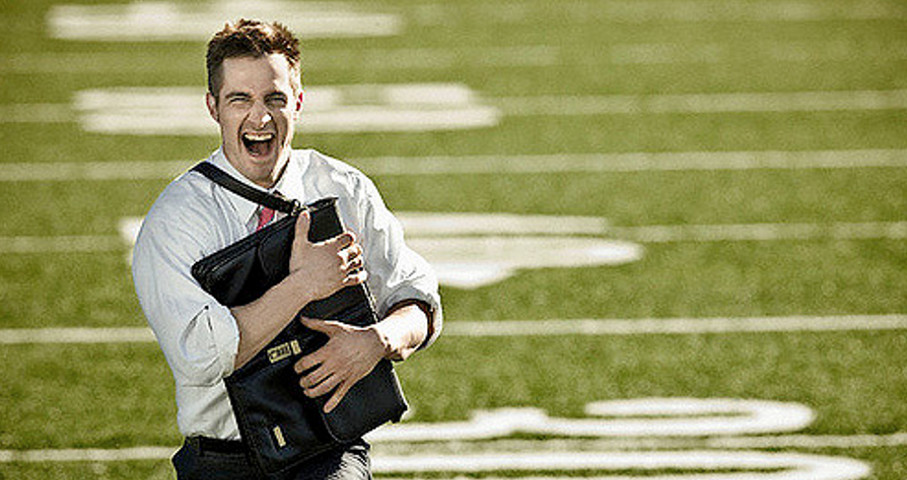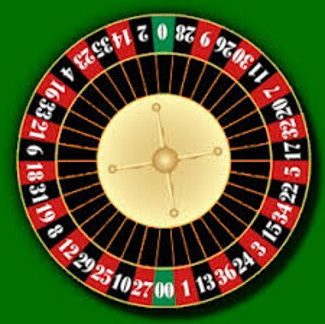How Do You Manage a Crisis With Sports Betting?
You may wager on sports purely for entertainment. You’ll probably never encounter a situation which you might call a “crisis.”
But if you are betting on sports with the serious goal of long-term profit, you probably will. Losing wagers is part of everyday life for even the most skilled of sports bettors. When this happens, the unexplained extended losing streak can really throw you for a loop.
If you do not have a plan ready for that time, chances are good that you will be seriously derailed by the situation. And if you do not know how you tend to react on an instinctive, emotional level when things go awry, you could end up losing more money than you need to through the turn of events.
So let’s talk about crisis management with respect to sports betting. What are some common ways that punters respond when things go wrong? What mindsets work? Which don’t? And how can you whether the situation and come out ahead?

Nervous breakdown in the making right here.
Do You Know What Going on Tilt Is?
You may be familiar with the concept of “going on tilt”. This is when a gambler becomes increasingly emotional and loses more and more rational control while placing wagers.
Oftentimes, the bettor on tilt is under some degree of illusion that continuing to place bets will turn a bad situation around.
Even though “tilt” is a gambling term applied to sports bettors and casino players, once you learn to recognize it as a state of mind, you’ll notice people go on tilt in all sorts of contexts which have nothing to do with gambling.
Players on tilt sometimes know that they are on tilt, but are frequently entirely unconscious of the matter.
Because rational judgment flies out the window while on tilt and because the situation tends to compound, is one of the fastest ways to blow through an entire bankroll.
I believe that going on tilt tends to result from poor personal crisis management. Combine it with a degree of unawareness of one’s thoughts, emotions and actions.
I’m hoping that by the time you finish this guide, you will have some practical tools which you can use to prevent yourself from going on tilt or recover more rapidly the next time it happens.
Also, make sure to take a look at “When is the Last Time You Stepped Outside of Your Comfort Zone“
System 1 Crisis Management vs. System 2 Crisis Management
At any given point in your life when you have decisions to make, there are two layers of processing going on.
These can be referred to as “System 1” and “System 2” as described by Nobel laureate Daniel Kahneman in the book, “Thinking, Fast and Slow”.
System 1 can be described as fast, instinctual, emotional, and automatic.
System 2 can be described as slow, deliberate, rational, and conscious.
In order to manage a crisis situation well, you need to make the best possible use of both of these systems.
System 2 is the easiest to modify because it involves conscious, rational thought. System 1 takes a lot longer to modify since it happens at a deep, unconscious level, but it can be trained.
Furthermore, by building a stronger understanding of how your own System 1 processing reacts to crisis situations, you can help to mitigate defects in that processing through rational means.
So let’s talk about a key aspect of how System 1 deals with crises: the fight, flight, or freeze response.
Fight Flight or Freeze

Damn nature…
When an animal encounters a predator in the wild, instinct kicks in and attempts to save the animal’s life in the most efficient possible manner.
This usually takes any of three forms: fight, flight, or freeze. As all of these happen automatically and unconsciously, they fall under System 1 processing.
The first two are self-explanatory. If the animal believes that it can potentially best the predator, it may engage. If it thinks that escape is a more viable option, it will flee.
The third option is not as well known to laymen as fight or flight. The freeze response is what happens when neither fight or flight appear viable, but the threat remains.
An animal that freezes in the face of the predator may drop on its side and appear to be dead, or it may simply remain in place, immobile, hoping the threat will pass.
In our modern lives, we usually do not encounter these immediately physically endangering scenarios (except, perhaps, during rush-hour traffic).
But we do encounter situations which we perceive to be just as hazardous, however indirect they might be.
And in some cases, this perception is not incorrect. The sports bettor who wagers for a living and has no secondary stream of revenue may feel justifiably panicked when he realizes that his strategies have ceased to deliver. Such a financial crisis can greatly destabilize his life.
But we can also magnify small situations, reacting to them as if they are much larger than they really are.
For this reason, even a smaller losing streak could set off a fight-flight-freeze response on an instinctual level if it seems unusual or unexpected enough.
Note the word “seems” here. That is the key. Sometimes we get fight, flight, or freeze in response to situations which really are insignificant.
Even though difference scenarios call for different optimal responses from System 1, our own personal psychologies may give us a bias towards fight, flight, or freeze overall.
For that reason, it is important to pay attention to your own fight-flight-freeze response patterns.
You should make a habit of noting two things:
- Physical and psychological clues that you are entering a fight-flight-freeze state
- Which state you tend to wind up in
Gamblers who end up on tilt with sports betting or casino games tend to be in some version of a fight-flight-freeze response.
The exact signs that one is experiencing such as state vary from person to person, but here are some common indications:
- Your heart may start beating more rapidly.
- You might tense up.
- Excess sweating is common.
- You might experience tunnel vision.
- Breathing can become shallow and rapid.
- Dry mouth can occur.
- You might need to run to the bathroom.
- Shaking is common as well.
- Emotions can be heightened, typically manifesting as anxiety, aggression, or a combination of both.
- There is a tendency to focus on the negatives.
- You may perceive yourself to have very little control or more control than you really have.
- You might become socially hostile.
- If a freeze response is in effect, you might start dissociating.
If you start taking notes on these signs and symptoms, you can come up with a personalized list and manage a crisis.
As for figuring out whether you usually fight, flee, or freeze, you can make a determination based on the behaviors which follow.
Fight: Aggression
A “fight” response is dominated by aggression and engagement. In such a state, you estimate (and sometimes overestimate) that you can confront the situation head-on and win.
A classic example of this not working out is a gambler who is on an unlucky streak, and is determined to get out of it as rapidly as possible. And how will she do that? By winning.

No matter what system or game being played, that aggression may hit you hard if you don’t control it!
She continues to place bet after bet with reckless disregard for how irrational such a move may be. Others urge her to stop, and she greets their suggestions with hostility. This is a form of tilting, and you see it with gamblers playing casino games like roulette, poker or slots, and you see it with sports betting as well.
Is the aggressive fight response to a crisis always negative? Not at all. Sometimes it is what a situation calls for, and is a reasonable response so long as emotions are held in check well enough for reason to function.
But that does mean that System 2 thinking needs to get involved somewhere along the way. And it can still be overturned even then by an over-aggressive fight response.
Let’s look at another situation with the same gambler. Let’s say she’s been betting on sports, and her unlucky streak is sending her into a crisis mode.
But now let’s imagine that she doesn’t go on tilt and throw all her money away trying to get back to winning immediately. Maybe she’s learned to recognize signs that she is going into fight mode, and is alert to them at all times.
If she’s set a rule for herself to close out of her betting site when this happens, she can step back from the situation a bit.
But let’s say even after thinking it over, she still feels there is a crisis. She doesn’t know why she keeps losing, and she’s worried her system isn’t working anymore.
Still in fight mode, she aggressively jumps into troubleshooting. This can be a good thing, as her crisis response can push her to really focus her efforts on getting to the heart of the problem and maybe innovating some creative solutions.
If she’s a professional, the motivation provided by her state of mind may even help her find her answers and get back to profiting before the situation sends her into the red.
But this can become a problem again if no rules are in place for how she’ll balance her efforts with other priorities. If she starts to neglect other things that matter (like sleeping, eating, relationships, her day job if she has one, and so forth), it can go too far.
Making positive use of a fight state without allowing it to become adaptive isn’t easy, but with sufficient self-awareness and personal rules in place to curb to destructive behaviors, it is possible.
Key Point
A “fight” state is one where the primary response to a threat is aggression. In its useful form, this might direct a sports bettor to troubleshoot a situation aggressively until problems with a system are ironed out. In its maladaptive form, it could cause that same bettor to go on tilt, placing wager to wager in hopes of somehow getting the upper hand again.
Flight: Anxiety
Next on our list is the flight response. Whereas a fight response is characterized primarily by aggression, a flight response is characterized emotionally by anxiety first and foremost.
When the flight response is working correctly, a bettor who is struggling with a losing streak may respond by instinctively withdrawing from further betting activities for the day. This would prevent additional losses and provide the punter with time to think and hopefully come to some rational determination about what to do next.
But like the fight response, the flight response can get out of hand. That same bettor, for example, may continue to avoid wagering or even confronting the problem that has been causing a losing streak for an extended period of time if that anxiety is allowed to persist.
Ironically, it is also possible for a flight response to produce the exact same tilting behavior as a fight response—just with an inverted set of intentions on an unconscious level.
A punter who is experiencing a flight response could place wager after wager in an emotional and irrational state. But whereas a bettor experiencing an aggressive fight response might be trying to win all their money back, a bettor who is experiencing an anxiety-driven flight state might actually be trying to self-sabotage and lose it all.
Why? Because that gives that punter an excuse to give up. After losing the last of it, the bettor can simply say, “Well, that’s it. My bankroll’s busted. I’m out.” This is accompanied by a sense of relief since the unpleasant situation is, however temporarily, over. Best of all, one may rest under the self-delusion that one did not intentionally run away, even though one did.
Key Point
A flight response is characterized primarily by anxiety. When it is functional, a flight response can bring a losing streak to a temporary halt and give a punter a chance to think through a situation and make a change. When it is maladaptive, a flight response can lead a punter to blow through a bankroll on tilt, or simply avoid troubleshooting a problem involving betting strategies.
Freeze: Dissociation
Out of the three crisis responses, the hardest one to describe is the freeze response. While some combination of anxiety and aggression may be present, the freeze response happens when the mind rejects both the possibility of fighting and fleeing. Faced with no perceived viable options, it simply “freezes”.
In order to cope with the overwhelming nature of the situation and the inability to act, the mind typically dissociates to some degree. This too is a difficult thing to describe, and it can range quite a bit. It involves some level of disconnect with your experiences and/or identity. What is happening seems far away, unreal, meaningless or irrelevant.
Freeze states are common among people who have PTSD or C-PTSD. The reason for this has to do with the fact that people who have experienced traumatic events in their pasts, especially long-term, often had no recourse during those events than to freeze, especially during childhood.
So later in life, the brain is pretty much wired up to go into freeze mode, often even if fight or flight would be appropriate responses.
As with fight and flight, a freeze mode can be helpful in some contexts and maladaptive in others when it comes to betting.
Let’s say that a punter is in a situation involving an unexplained losing streak, and experiences a disconnect instead of aggression or anxiety being dominant. That person may simply stop and stare blankly at the screen for some indeterminate time period once the freeze state kicks in.
Once it wears off, the question is what happens next. If the punter comes up with and follows through on a troubleshooting plan, then it worked out—the freeze state might’ve stopped the punter from tilting as an act of fight or flight, and offered time for a kind of “reboot” of the mind.
But sometimes, a freeze state can backfire when trying to manage a crisis.
A person experiencing a mental freeze sometimes doesn’t experience a physical freeze. A punter might, for instance, dissociate, and then just keep right on placing wagers, indifferent in the moment to their outcomes, because the freeze has created a temporary emotional disconnect from consequences.
There also seems to be a kind of long-term “deep freeze” which I have noticed is possible. Just as we can experience in-the-moment terror or drawn-out anxiety that leads us to run away from our problems long-term, we can also experience an in-the-moment freeze or a long-term low-level freeze.
I’ve experienced just such a freeze state long-term, and have observed it in other punters too. It doesn’t necessarily involve dissociation. But it does entail a long time frame on “pause” where one feels it is impossible to make forward progress on betting but also unacceptable to run away and give up and quit. It can persist for weeks, months or even years.
Punters in such a state may find seemingly endless excuses not to take steps toward resolving the problems that are holding them back while seeming to be involved at the same time.
This might, for example, involve a lot of posting on message boards, but more talk than solutions or action. In short, the person will do just enough to feel like they have not totally run out on the situation, but not enough to really engage with it either because they still feel like they are incapable of making progress.
Key Point
A freeze state is what tends to take over when a punter perceives that a situation is impossible to tackle or flee. In its useful form, a temporary freeze might be an alternative to an aggressive or anxious tilt, possibly stopping tilting in its tracks altogether. In its maladaptive form, a freeze could contribute to a tilt through emotional withdrawal rather than emotional engagement. A punter can also theoretically go into a kind of long-term freeze where strategic issues are neither addressed directly nor entirely avoided.
Reining In and Retraining Fight-Flight-Freeze Responses
We’ve talked in detail now about how to recognize when you might be going into a fight, flight or freeze mode. We’ve also discussed how all three mindsets can feasibly help or hinder you when you are facing a betting crisis like a string of incomprehensible losses.
So what can you do to make these responses serve you rather than stand in your way? As I have emphasized a few times, developing greater awareness of your unconscious responses is essential. So is coming up with rational plans that you can fall back on when your rational mind is not functioning at its best.
I suggest coming up with an individual approach tailored to your specific responses to threatening situations. Following are a few examples of possible ways to handle these responses in a productive manner.

Freezing up can happen to the best of us. You’ve just got to get your act together and get back on in it!
Aggressive Angela
Angela is a punter who usually responds aggressively to confusing or threatening situations. Her first instinct is always to fight.
In the past, if she experienced a longer than usual losing streak, this instinct would draw her into going on tilt, aggressively placing one wager after another in a desperate bid to get back to being profitable as quickly as she could. This had a tendency to empty her bankroll.
Aware that she has a problem, Angela comes up with the following plan to help her
Angela writes down a list of what she experiences physically and psychologically when she is about to go on tilt, as well as what she experiences when she is on tilt.
She makes a new habit of continually monitoring herself for these signs when she is betting. She is always paying attention.
If she spots enough signs she is moving into the tipping zone to raise concern, she immediately stops what she is doing, places no further wagers, and walks away from the computer for a minimum of 30 minutes.
If Angela misses these initial signs but becomes aware she is on tilt later, her rule is also to walk away from the computer for at least half an hour.
Angela notices that working out helps her burn off adrenaline, so she usually exercises while she is taking her break.
At the end of her break, she doesn’t return immediately to her computer. Instead, she sits down and tries to think through the situation.
If she gets worked up again, she quits betting for the day. Otherwise, she keeps trying to think things through.
If she does determine a major issue may exist, she either drops to 50% stakes or bets on paper until she figures out what it is, turning her aggressive fight response toward troubleshooting.
Only once the problem is solved does she return to betting with full stakes.
This system allows Angela to make the best use of her fight response without falling victim to its potential snags.
Frightened Fred
Fred’s problems are much like Angela’s, except that instead of experiencing a fight response when he is on a losing streak, he experiences a flight response.
Like Angela, Fred has a tendency to go on tilt, but instead, he has an unconscious urge to blow his bankroll so that he can flee from the situation.
His plan to adapt would look much like Angela’s:
Fred too makes a list of signs he is going on tilt, monitors himself constantly for signs, and likewise schedules a break whenever he thinks he may be about to go on tilt.
Fred notices that meditation helps him to clear his mind, so he will often do that while he is on his break
Once Fred’s state of mind is clear, he will attempt to assess the situation rationally. If he cannot successfully clear his mind today, he will quit wagering for the day and do something else.
The hardest thing for Fred when he does discover that his strategies need work is not turning the flight response into a long-term decision by simply throwing in the towel altogether. To prevent these response, he keeps a log of previous incidents which prompted high anxiety and which he was able to successfully overcome. Reviewing it is a reminder to him that his learned helplessness is not accurate and that he does likely have the capacity to solve this new problem.
Like Angela, he reduces his stake sizes or goes back to betting on paper until the issue is resolved.
Dissociating Devon
Let’s take an example of a third punter named Devon who tends to freeze and dissociate if her strategies aren’t working or if she makes a mistake. Like the others, Devon can sometimes tilt, because in her mind “this isn’t happening anyway”. She also sometimes freezes while wagering live, which sometimes costs her money at critical moments.
Devon’s plan might be as follows:
Devon will take notes on signs of freeze states or other dissociative states and self monitor constantly. If a freeze response seems to be gearing up, she will take a break.
As a freeze state is one of overwhelm, attempting to engage in an activity may not offer an adequate reset (and may make it worse). Devon has found it is most efficient to withdraw from activities until she feels less overwhelmed and is able to function again. To do this, she goes to a dark, quiet room and simply waits for the freeze state to pass.
After Devon is able to function again, she attempts to make a rational assessment of the situation.
If possible, she resumes betting and/or troubleshooting as needed, just like Angela or Fred.
As with Fred, Devon struggles not to go into a long-term freeze with her betting activities where she neither troubleshoots aggressively nor quits altogether. To prevent this, she has a specific schedule and set of directives for researching and testing amendments to her strategies until she reaches a profitable state again. She does not deviate from this schedule, however discouraged she may feel.
How Do You “Rationally” Assess a Losing Streak?
All of this leads to the question of how one can rationally analyze a losing situation in sports betting. Alas, a lot of this comes down to specifics which can range widely from one scenario to another. Troubleshooting in particular is a topic of its own, and one which is technical in nature.
The most important thing is to learn how to separate automatic emotional responses to a situation from objective observations and their logical implications.
As it is usually impossible to remove emotional considerations entirely, we can instead call on the self-awareness that we cultivate to help us understand how our emotions may be coloring our analysis. This might involve asking ourselves questions like:
“Is this losing streak truly statistically significant? Is the panic I’m experiencing causing me to attribute significance to it where none may exist?”
“Did my strategies really just ‘break’? Could it be that small adjustment I made last week has had an impact?”
“I’ve been showing up to bet feeling fatigued each day for a while. Could that be causing me to make mistakes I’m not aware of? In short, is the problem really my strategies? Is it just something I am doing wrong that I can fix?”
“I’ve noticed my current sportsbook’s odds haven’t been the greatest lately. Could joining another betting site help me find the value I need to get back in the black? Could it be that simple?”
Fight, Flee or Freeze.
The one thing that these responses all have in common is that they happen when we feel overwhelmed.
With fight, there is a desperate grapple for control. But, that springs from a sense that one has lost at least some control to begin with.
With flight or freeze, there is a sense of deep helplessness and loss of control.
This can even lead us to the irrational belief that something permanently outside our control is stopping us from profiting, and that the problem is one we cannot affect. In other words, “It is just my luck.”
But there is always a cause for any effect. Somewhere there is a rational, concrete explanation. It might even be a surprisingly simple one.
You can identify that explanation, and once you do, you will have a factor which you can influence. You may not be able to control your profitability right now, but you can control that process.
General Tips for Crisis Management

Take these tips and check them off. They really should help…
Following are a few helpful general tips for crisis management which you can apply to situations in sports betting.
Try not to jump to conclusions. If you are panic prone, you might see disaster where there really is none in sight. For example, when you overreact to a string of losses which is not outside the norm of what your strategies can produce. Try and let these situations have a chance to self-correct before you react to the alarm bells.
You may face a crisis such as a string of losses which you cannot explain. Or at a loss of overall profitability, acknowledge that the event has happened. Accept it. Give yourself adequate time and space to process that reality. If you try to deny it or leap forward without really acknowledging that the situation is as serious as it truly is, you will just overwhelm yourself further with your efforts to hide from reality. You might also cut off important avenues of help.
Be alert for not just signs of emotional loss of control, but also for cognitive distortions. For example, if you notice yourself using the word “always,” i.e. “Why do I always find myself back at square one?” or “never,” i.e. “I never seem to know what I’m doing” . Those are signs that you’re not thinking clearly and are engaging in catastrophic behavior.
Before wrapping up, do you know the best places to play?
BetOnline
Bovada
MyBookie
Take a look at any list of the best USA sportsbooks and you’re bound to see a BetOnline Sportsbook Review occupying one of the top spots. They’ve been active for longer than a decade and have a solid reputation among sports bettors.
Want to see a full BetOnline review? Just check this link right here.
Joining up over at BetOnline right now and using the code “BOL1000” can get you a sign up bonus of up to $1000!
Bovada continues to be my personal favorite online sportsbook and casino. They give players a fair experience, they treat their marketing partners with respect and transparency and most importantly they have consistently maintained a reputation of fairness, honesty and integrity.
For the full Bovada review, just click on over here!
If one were to go and join Bovada now and use the code, 130347 they could receive a 50% bonus up to $250 for use in the sportsbook!
The cream is rising to the top of the online betting world. Mybookie.com has proven over the past two years that they are a legit, fair and reputable online bookmaker for US gamblers. They have consistently paid out winning players in a timely fashion. Your money is safe and your bets are fair. When you win you will get paid.
You know we got a link to a full review. Here you go.
Best promo right now over at MyBookie? A sign up bonus of up to $1000! Try to beat that with a stick! You can’t do it!
Educate yourself.
The scariest thing is often just feeling uncertain as to what is going on and what to do next. To counteract that, one of your best bets is to research and test. Run analytics on your strategies and outcomes, and wait for the facts to speak to you.
Do not isolate yourself with the situation. Along with accessing reference materials, you should also consider accessing human resources as well. These could include friends who wager on sports as well. Skilled punters on forums. Even other family members, friends or colleagues who might have some valuable insights to contribute. Don’t forget the problems with betting aren’t always the result of strategic issues. Sometimes they involve how we manage money or our own psychologies. Anyone might potentially shed light on that.
Conclusion
The First Step to Coping With a Crisis With Your Sports Betting Account is to Manage Your Own Reactions
Sometimes, a short-term problem like a major, unexpected loss can set off a cascading panic reaction. This will make the problem worse if it is poorly controlled.
Proper self-management might be all it takes to withdraw from the situation long enough for the problem to resolve itself.
As for long term crises, those can be harder and more time demanding to deal with. These are likely to set off your fight, flight or freeze response. They may continue to do so sporadically until they are resolved.
With those situations too, managing yourself well can prevent misdirected responses from further wrecking your account. Then, you are allowed to restore equanimity and return to effective, rational troubleshooting.
Such troubleshooting itself may be an involved, intensive effort, but at least you will be on target. Hopefully soon, you’ll be back on track and profiting with sports betting.
For More Great Articles, Make Sure to Take a Look At –


